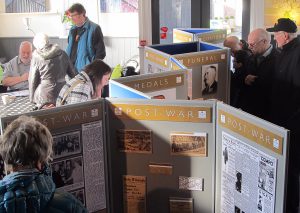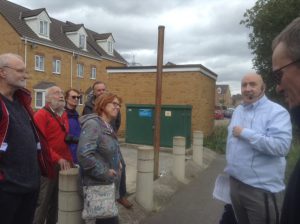
At the Centre for Hidden Histories led Discovery Day in Leicester (4 September 2017), I was fortunate to catch-up with Associate Professor Nigel Hunt about the ‘Belper in Wartime’ project. This project arose from a Centre for Hidden Histories event in Chesterfield. Nigel met Adrian Farmer, a representative of Belper’s World War One Working Group. At the start of the Centenary, this group had won a Heritage Lottery Fund grant to research the individuals listed on the Belper War Memorial and produce a community history book about ‘Belper in Wartime’. Nigel suggested that as a follow-on project, the Belper Working Group should collaborate with the Centre for Hidden Histories and research life in Belper after the First World War. A key research question would be to consider how men returning from the trenches adapted or struggled to reintegrate into postwar Belper community life. Newspapers have been a key source of information for this project as has witness testimony recorded from descendants.

